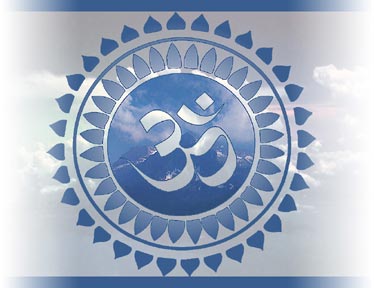Hinduism
-
If one's life can be understood as a grand pilgrimage, discuss the four essential goals of this pilgrimage: within the Path of Desire, 1. kama - pleasure, and 2. artha - wealth, fame and power, and within the Path of Renunciation, 3. dharma - religious and civic responsibility, and 4. moksha- spiritual liberation and realization of the hidden Infinite Self within our own being, the Atman. What is the Hindu meaning of each goal and the unique challenges faced along the way to realizing them? Which is the highest goal, and how does this differ from Euro-American values and goals
-
What are the great lessons of the Bhagavad Gita? While advocating for war, how does Krishna show a path toward non-violence? How does one act when one does not act in anticipation of the fruits of one's action?
-
As a pilgrimage, discuss the four possible paths (marga) one can pursue in order to reach the goals of life: jnana (way through knowledge), bhakti (way through love and devotion), karma (way through work and action), and raja (way through physical and mental meditative discipline). What are the unique characteristics and stages of each path, as well as methods used along the way? Discuss the nature of and explain why the methods, goals, conceptualizations of God and the Universe of the jnana and bhakti paths differ.
-
As a pilgrimage, discuss the four stages of life each individual moves through. What are the particular challenges of each?
-
How is the Hindu concept of "self" understood within the contexts of the three gunas, the four paths and stages of life, and how does it differ from the Euro-American concept of self?
-
What is the nature of the Hindu soul (jiva), and its relationship with time, with reincarnation, and with Atman? What is karma and discuss the consequences of this understanding on human behavior?
-
What is the nature of the Hindu God and its varied manifestations? Differentiate the significance and meaning of Brahman, Brahma, Vishnu, Shiva, Lakshmi, Rama, Krishna, Kali, and Ganesha, among others. What is the relationship of the self to the cosmos? How does this conceptualization differ from the prevailing Euro-American idea of divinity?
-
How is the Hindu cosmos - universe understood, with its cyclic notion of time and transcendent notion of space (non-dualist view)? Within this understanding, what is the role and understanding of maya?
-
A central axiom upon which Hindu philosophy is based in the paradox of ultimate unity and oneness within a world of differentiation and multiplicity. How does the metaphor of the "mountain paths and its summit" help reconcile this ambiguity? How is this axiom expressed in other aspects of Hindu life, as well as religious doctrine?
-
What is the significance and describe the process of a tirthayatra or pilgrimage? What is the goal of a Hindu pilgrimage?
-
What is the meaning and significance of this "sound," whose image is provide below: Consider the sound itself? Consider this image of Shiva and below. Consider other images of the sound as well.
-
How would you define the "there, there" in Hinduism?

Some Key Hindu Terms and Concepts